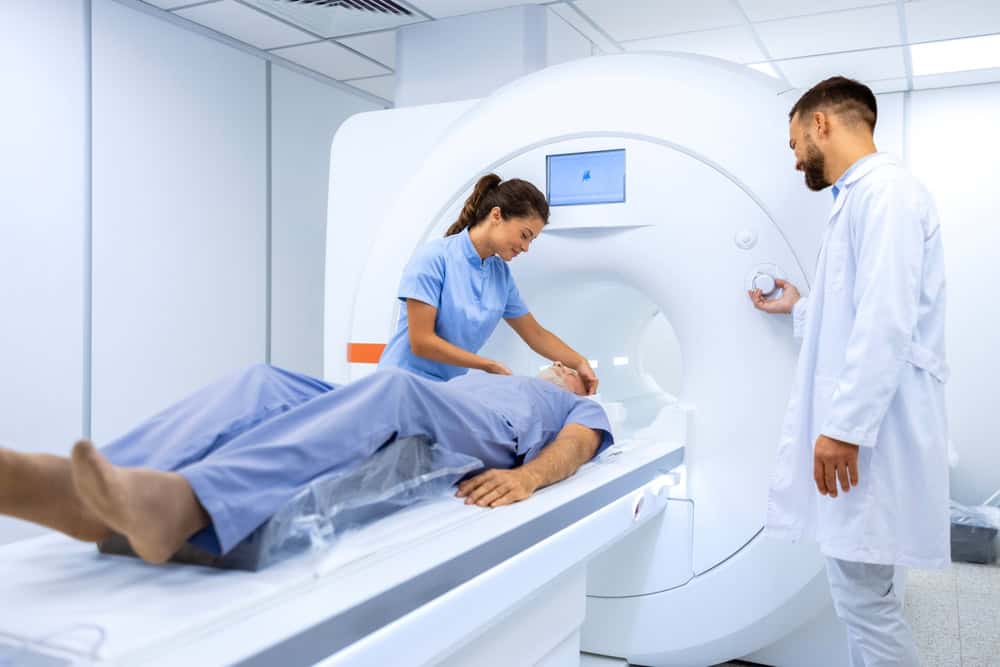Summary:
Persistent Back Pain That Won't Improve
Most back pain resolves on its own within a few days or weeks. Your body has remarkable healing abilities. But when pain persists beyond what feels normal, it’s signaling something more serious is happening.
While 95% of people recover within a few months, 5% develop chronic pain lasting 3 months or longer. The key is recognizing when your pain has crossed the line from temporary discomfort to a condition requiring professional intervention.
If you’ve been dealing with back pain for more than 4-6 weeks without significant improvement—especially if it’s interfering with work, sleep, or daily activities—it’s time to see a spine specialist.
When Back Pain Disrupts Your NYC Lifestyle
Living in NYC demands a lot from your body. Long commutes, hours at a desk, navigating subway stairs, and the general pace of city life all put stress on your spine. When back pain starts limiting these essential activities, professional evaluation becomes crucial.
Consider how your pain affects your daily routine. Are you avoiding subway stairs because walking up causes shooting pain? Do you struggle to sit through meetings? Find yourself constantly shifting positions during your commute? These functional limitations signal that your back problem has moved beyond something you can manage on your own.
Approximately 75% of those with chronic severe back pain report disability, with 60% noting mobility problems and work limitations. Don’t wait until your pain reaches this level of severity.
The reality is stark: untreated back problems often worsen over time. What starts as occasional discomfort can evolve into chronic pain that significantly impacts your quality of life. Early intervention with a spine specialist can prevent this progression and help you maintain your active NYC lifestyle.
Professional spine care becomes essential when pain interferes with essential activities like climbing stairs, sitting for extended periods, or performing job-related tasks. The sooner you address persistent symptoms, the better your chances of returning to full function without long-term complications.
Pain That Wakes You Up at Night
If your back pain wakes you up in the middle of the night or appears when you’re in certain positions like lying down, this could be a sign of a more serious problem such as infection, fracture, severe nerve compression, or even cancer.
Night pain is different from the typical aching you might feel after a long day. This type of pain often feels deep, constant, and unrelated to movement or position changes. It interrupts your sleep cycles, leaving you exhausted and unable to find comfortable sleeping positions.
Sleep disruption from back pain creates a vicious cycle. Chronic pain statistics show there’s an average 42 minutes sleep debt when people suffer with chronic pain. Poor sleep affects your body’s ability to heal and manage pain, potentially making your condition worse.
Don’t dismiss night pain as simply “sleeping wrong.” While occasional discomfort from an awkward sleeping position is normal, consistent night pain that disrupts your sleep requires professional evaluation. A spine specialist can determine whether your symptoms indicate a serious underlying condition that needs immediate attention.
The relationship between sleep and spine health is complex. Quality sleep is essential for tissue repair and pain management, but spine problems can make restful sleep nearly impossible. Professional intervention can break this cycle and restore both your spine health and sleep quality.
Want live answers?
Connect with a NY Spine Medicine expert for fast, friendly support.
Neurological Symptoms That Demand Attention
When back pain is accompanied by neurological symptoms like numbness, tingling, or weakness, you’re dealing with more than a simple muscle strain. These symptoms indicate potential nerve involvement that requires specialized evaluation and treatment.
Back pain accompanied by sensations of numbness, tingling or weakness could be a sign of nerve irritation or damage. Unlike muscle pain that typically responds to rest and basic treatment, nerve-related symptoms often require targeted interventions to prevent permanent damage.
The nervous system doesn’t tolerate compression or irritation well. Delays in treatment can lead to irreversible complications.
Numbness and Tingling in Your Legs
Weakness, numbness or tingling in your extremities (arms, hands, fingers, legs, feet and toes) could indicate that there’s a problem with your spine in the lumbar region. This happens because nerves traveling from your spinal cord to your extremities can become compressed or irritated.
The sensation might feel like your leg is “falling asleep,” but unlike the temporary pins and needles you get from sitting cross-legged too long, spine-related numbness and tingling doesn’t resolve when you change positions. It may start in your lower back and travel down your buttock, thigh, or all the way to your foot.
Severe back pain coupled with shooting pain down your leg could be a sign of sciatica, a form of pain that affects the sciatic nerve, which runs from the lower back through the buttocks before branching down each leg, usually resulting from a herniated disk.
These symptoms can significantly impact your mobility and daily function. You might notice difficulty walking, climbing stairs, or maintaining balance. Some people describe feeling like their leg might “give out” unexpectedly, which can be both frightening and dangerous.
Early treatment of neurological symptoms is crucial. Nerve pain is serious and can result in permanent damage or disability if left untreated. A spine specialist can perform the necessary tests to determine the exact cause of your symptoms and develop a treatment plan to prevent permanent nerve damage.
Emergency Warning Signs You Cannot Ignore
Some spine-related symptoms require immediate medical attention. If you have tingling or numbness in the groin area and lose the ability to go to the bathroom normally, this can be a sign of cauda equina syndrome, which occurs when there is compression on the nerves at the base of the spinal column.
This condition is rare, but if it happens, it’s important to seek care right away, especially if it’s a new problem, as cauda equina syndrome can cause permanent damage if it’s not treated quickly. Other emergency symptoms include sudden severe weakness in both legs, complete loss of bowel or bladder control, or severe pain following trauma like a fall or accident.
If you have leg weakness, incontinence, and numbness together, you might have cauda equina syndrome, a serious illness characterized by spinal cord nerve damage that is a medical emergency, and patients usually need surgery immediately to decompress the nerves and reduce permanent damage.
Don’t hesitate to seek emergency care if you experience these symptoms. While most back pain isn’t an emergency, certain combinations of symptoms indicate serious conditions that require immediate intervention. Time is critical in preventing permanent neurological damage.
Even if your symptoms don’t constitute an emergency, significant neurological changes warrant prompt evaluation by a spine specialist. The earlier nerve problems are identified and treated, the better your chances of full recovery and prevention of long-term complications.
Getting Expert Spine Care When You Need It Most
Recognizing when to see a spine specialist can make the difference between quick recovery and chronic, life-altering pain. The warning signs are clear: persistent pain lasting more than 4-6 weeks, neurological symptoms like numbness or weakness, night pain that disrupts sleep, and any emergency symptoms requiring immediate attention.
Don’t let back pain control your life or limit your ability to enjoy everything NYC has to offer. Early intervention with specialized care often leads to better outcomes and prevents the progression to chronic, disabling conditions.
If you’re experiencing any of these warning signs, we offer comprehensive evaluation and treatment options designed to get you back to your active lifestyle without surgery whenever possible.






